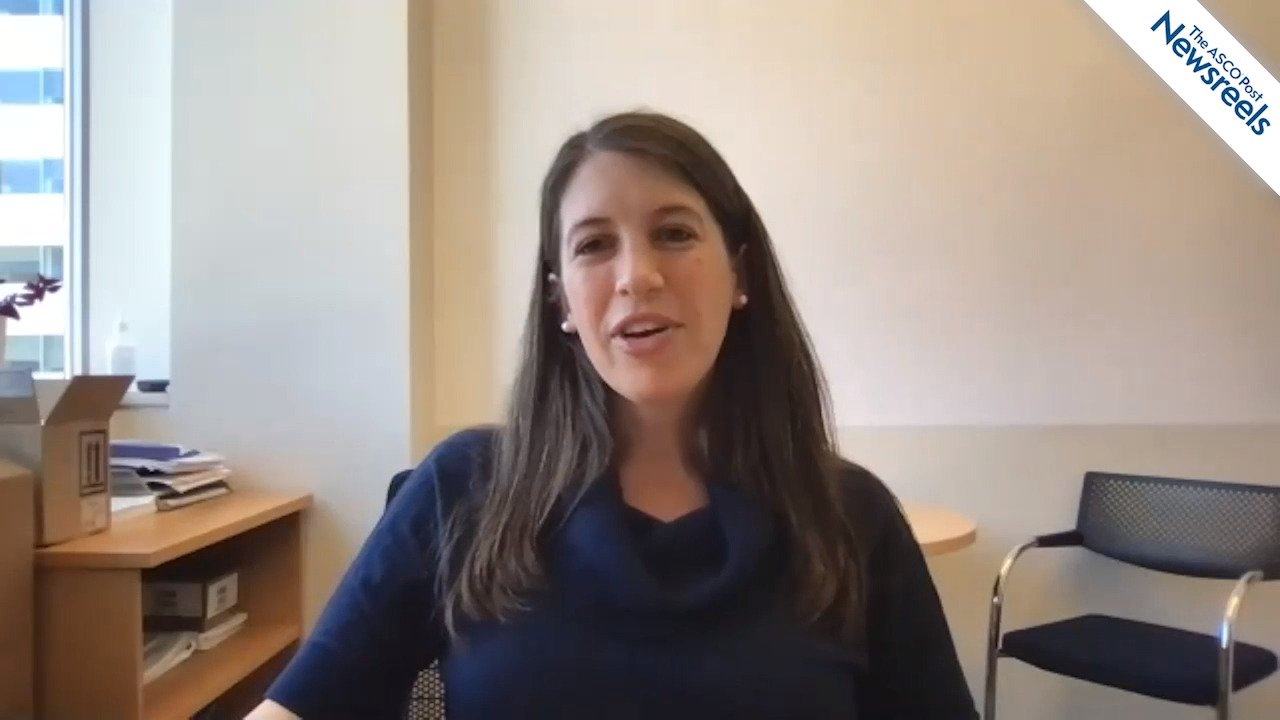Brian I. Rini, MD, on Renal Cell Carcinoma: Data on Atezolizumab, Bevacizumab, and Sunitinib
AACR Annual Meeting 2021
Brian I. Rini, MD, of Vanderbilt University, discusses the IMmotion151 trial results on overall survival and the association of gene expression and clinical outcomes with atezolizumab plus bevacizumab vs sunitinib in patients with locally advanced or metastatic renal cell carcinoma (Abstract CT188).
The ASCO Post Staff
Katelyn T. Byrne, PhD, of the Perelman School of Medicine at the University of Pennsylvania, discusses the first in-depth analysis of the impact of selicrelumab, an anti-CD40 antibody, which was found to enrich T cells in pancreatic tumors, activate the immune system, and alter the tumor stroma (Abstract CT005).
The ASCO Post Staff
Ralph R. Weichselbaum, MD, of the University of Chicago, discusses oligometastasis as a part of the metastatic spectrum where ablative therapies, such as surgery or stereotactic body radiotherapy, may be curative alone or with systemic agents, as well as some potential biomarkers to guide treatment selection.
The ASCO Post Staff
Joann G. Elmore, MD, MPH, of the UCLA Fielding School of Public Health, discusses previous studies that show wide variability in cancer diagnoses, the uncertainties introduced by computer-aided detection tools, and new research on artificial intelligence and machine learning that may lead to more consistent and accurate diagnoses and prognoses, potentially improving treatment (Abstract SY01-03).
The ASCO Post Staff
Vivek Subbiah, MD, of The University of Texas MD Anderson Cancer Center, discusses data on selpercatinib that showed promising activity across a variety of RET fusion–positive cancers, including treatment-refractory gastrointestinal malignancies. This analysis highlights the need for genomic profiling to identify actionable oncogenic drivers.
The ASCO Post Staff
Michel Sadelain, MD, PhD, of Memorial Sloan Kettering Cancer Center, discusses the challenges in developing CAR T-cell therapy, as well as the progress being made, such as creating hybrid CAR and T-cell receptors that should enable T cells to recognize much lower levels of antigens. The field, he says, is poised to take on a range of solid tumors to extend the successes in hematologic malignancies.





